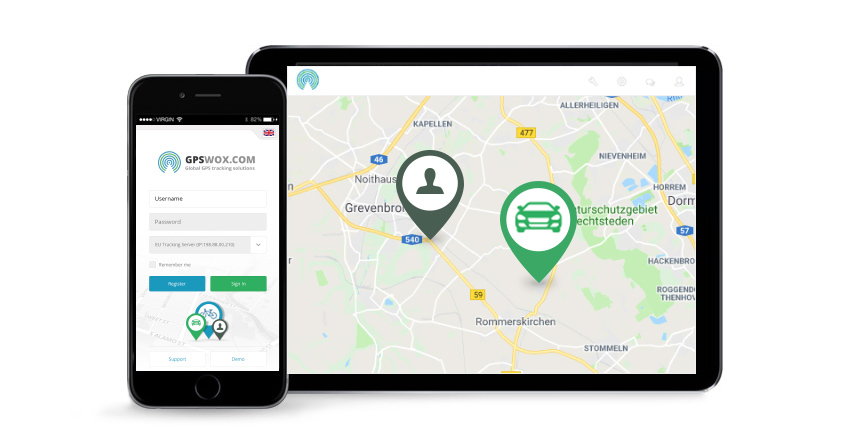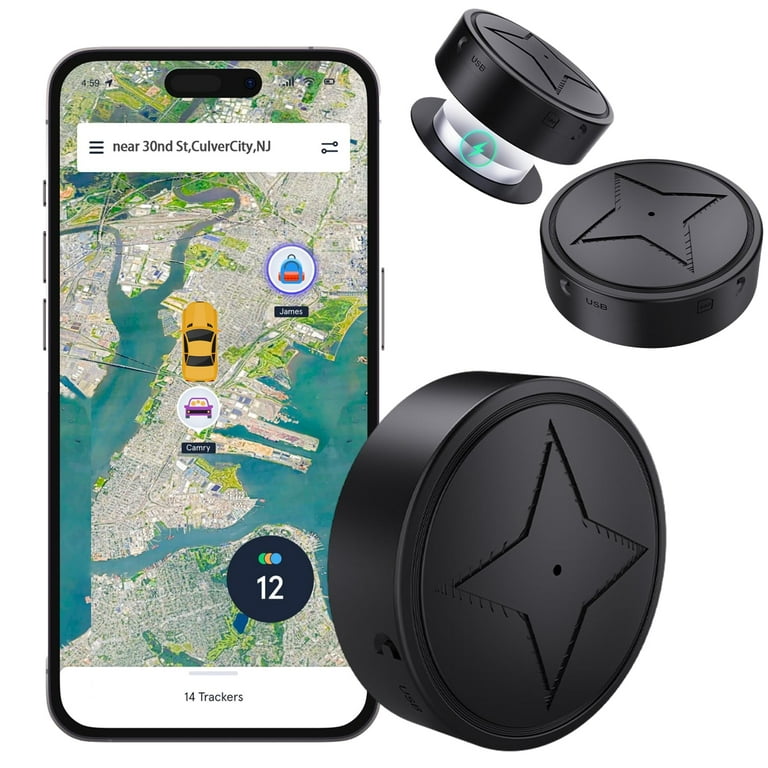Real-Time GPS Tracking Solutions for Personal and Service Use
Real-Time GPS Tracking Solutions for Personal and Service Use
Blog Article
Navigating the Future of GPS Monitoring: Technologies, Difficulties, and Opportunities Ahead
As we stand at the crossroads of social effects and technological improvements, the landscape of GPS monitoring is poised for a transformative trip ahead. The advancement of GPS innovation has been fast, ushering in a brand-new era of real-time tracking abilities that assure extraordinary degrees of accuracy and effectiveness. Nonetheless, with great advancement comes fantastic duty, as information privacy issues loom big and protection difficulties in GPS tracking raising essential inquiries regarding securing delicate info. Yet, amidst these challenges exist hidden chances waiting to be explored, offering a glimpse right into the untapped capacity of a market at the brink of change.
Advancement of GPS Innovation
Established for army purposes, GPS technology has evolved to come to be a common device in numerous markets, consisting of transport, logistics, agriculture, and personal navigation. Early GPS systems were defined by minimal protection, lower accuracy, and bulkier equipment needs.
One key turning point in the evolution of GPS modern technology was the growth of Careful Accessibility (SA) in the 1990s, which deliberately deteriorated the accuracy of noncombatant general practitioner signals. The discontinuation of SA in 2000 dramatically enhanced GPS precision for private customers. Succeeding advancements, such as the deployment of additional satellite constellations like Galileo and BeiDou, have actually better improved GPS insurance coverage and precision, making it a crucial tool in everyday life. As GPS innovation proceeds to develop, we can anticipate more enhancements in accuracy, performance, and protection, opening new opportunities for development and applications across different markets.
Real-Time Monitoring Developments
Structure on the advancements in GPS technology that have actually changed accuracy and insurance coverage, real-time monitoring has arised as a crucial location of advancement with profound ramifications across various fields. Real-time monitoring improvements allow companies and organizations to keep an eye on workers, assets, and lorries instantaneously, giving important understandings for decision-making procedures - gps tracking. By leveraging real-time information, companies can boost functional efficiency, improve customer care, and make sure the security and safety and security of their assets
One of the essential improvements in real-time monitoring is the assimilation of synthetic intelligence and artificial intelligence algorithms, which allow predictive analytics and anomaly discovery. These capacities enable proactive upkeep organizing, route optimization, and danger reduction approaches. The development of real-time tracking systems has actually led to the advancement of mobile applications and customizable control panels, equipping users to gain access to vital details anytime, anywhere.
Information Personal Privacy Problems

Data personal privacy issues include different facets, including the storage, sharing, and retention of place data. Services should implement durable security procedures to shield GPS tracking information from cyber risks and data violations. Transparent plans relating to data collection techniques and the function of monitoring are necessary to develop trust with customers and guarantee conformity with data defense guidelines.
Safety And Security Difficulties in GPS Tracking
Attending to information privacy concerns in GPS tracking is elaborately linked to reducing the security tests that emerge from possible vulnerabilities in the innovation. One of the main safety and security difficulties in GPS tracking is the risk of unauthorized access to delicate area data - gps tracking. Cyberpunks might obstruct GPS signals, control location information, and even track individuals without their authorization. This not just invades individual privacy yet also positions significant safety threats.

An additional security challenge is the possibility for spoofing or jamming general practitioner signals. By conflicting or transmitting false signals with genuine ones, harmful stars can deceive GPS receivers and adjust place information. This positions threats not only for private users yet additionally for governmental and armed forces applications that depend on accurate placing details. Applying durable security, verification actions, and signal confirmation methods are important steps in attending to these safety difficulties in GPS monitoring.
Arising Opportunities in the Market
The blossoming field of General practitioner monitoring modern technology presents a myriad of encouraging possibilities for sector growth and advancement. One key opportunity lies in the growth of GPS tracking applications past traditional industries. General practitioner monitoring can revolutionize client treatment by allowing remote tracking of vital signs and ensuring prompt medical help.
One more considerable opportunity in the GPS monitoring industry is the combination of sophisticated analytics and synthetic intelligence. By leveraging these technologies, businesses can acquire valuable understandings from GPS data to improve functional effectiveness, enhance decision-making processes, and offer customized services to customers. Additionally, the boosting demand for linked devices and IoT remedies offers a ripe possibility for general practitioner monitoring companies to increase their offerings and produce ingenious services that accommodate a more connected globe. By taking advantage of these emerging chances, GPS monitoring business can position themselves for sustained growth and success in the vibrant landscape of the sector.
Conclusion
Finally, the future of general practitioner tracking is noted by constant advancement and technology in innovation. Real-time monitoring developments and arising possibilities present encouraging potential customers for the market. Data personal privacy concerns and safety and security difficulties remain substantial obstacles that require to be attended to. As the industry moves on, navigating these difficulties will be vital to make try here certain the ongoing growth and success of GPS tracking technology.
With excellent development comes great obligation, as information privacy concerns impend huge and protection obstacles in General practitioner tracking raise essential inquiries regarding guarding delicate information.With the rapid expansion of GPS tracking technology in numerous sectors, dealing with information personal privacy concerns has actually ended up being a critical crucial for both organizations and consumers alike. The collection of location data with GPS monitoring elevates substantial privacy problems, as it allows the monitoring of individuals' behaviors and motions. Companies using GPS tracking have to prioritize safeguarding this data to avoid unauthorized gain look at more info access to or misuse that could jeopardize people' personal privacy legal rights.
Services need to carry out durable security procedures to protect General practitioner monitoring information from cyber risks and data violations.
Report this page